All Stories
-
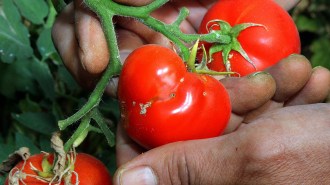 Agriculture
AgricultureHow silicon turns tomato plants into mean, green, pest-killing machines
Treated plants fight pests without the need for toxic pesticides, oozing a "larval toffee" that stunts tomato pinworms’ growth and attracts predators.
-
 Climate
ClimateBuying carbon credits to fight climate change? Here’s what to know
Carbon credits sold on the voluntary market are under scrutiny for not offsetting greenhouse gas emissions as claimed.
-
 Health & Medicine
Health & MedicineAvoidable deaths increased in the U.S. as they dropped elsewhere
In the United States, deaths that could have been avoided rose, on average, from 2009 to 2019. That’s in contrast to European Union countries.
-
 Health & Medicine
Health & MedicineA deep brain stimulation volunteer discusses life after depression
In this bonus episode of The Deep End, you’ll hear an update from Jon Nelson, who is living what he calls his "bonus life."
-
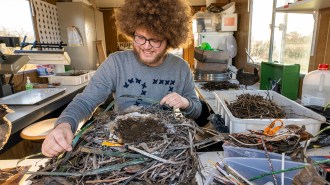 Animals
AnimalsPlastic ‘fossils’ help scientists reconstruct the history of bird nests
Plastic waste has let common coots reuse nests year after year. Scientists have now used the trash layers to date how old nests are.
-
 Neuroscience
NeuroscienceHuman memory is flawed. But a new book says that’s OK
The new book Memory Lane convincingly demonstrates how memories are like Lego buildings that are constantly being rebuilt.
-
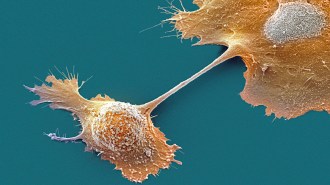 Health & Medicine
Health & MedicineAn mRNA cancer vaccine may offer long-term protection
A vaccine kept patients free of pancreatic cancer for years, yet new reports say the NIH is advising against mentioning mRNA tech in grants.
By Meghan Rosen -
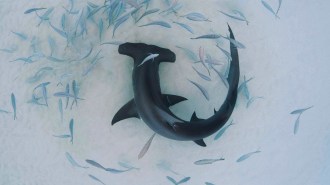 Animals
AnimalsHammerhead sharks’ diets may affect if they roam or stay home
Understanding hammerhead sharks’ food preferences could aid efforts to protect the critically endangered fish.
-
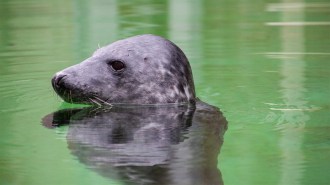 Animals
AnimalsGray seals may sense their own blood oxygen levels
The seals’ ability to detect the amount of oxygen in their blood may help them make diving decisions and avoid drowning.
-
 Neuroscience
NeuroscienceBabies can form memories, and they do it a lot like adults
A brain scanning study of babies reveals how some of the earliest memories are made.
-
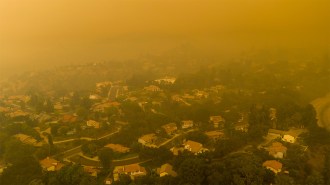 Earth
EarthWildfires and farm fertilizer use are fueling ozone pollution
Fires and agricultural soils can rival cars and factories in emitting chemicals that lead to ozone, making it hard to meet air quality standards.
-
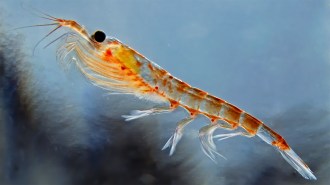 Animals
AnimalsStinky penguin poop strikes fear into the hearts of Antarctic krill
A chemical in Adélie penguin guano may have cued krill to take evasive maneuvers in lab tests.